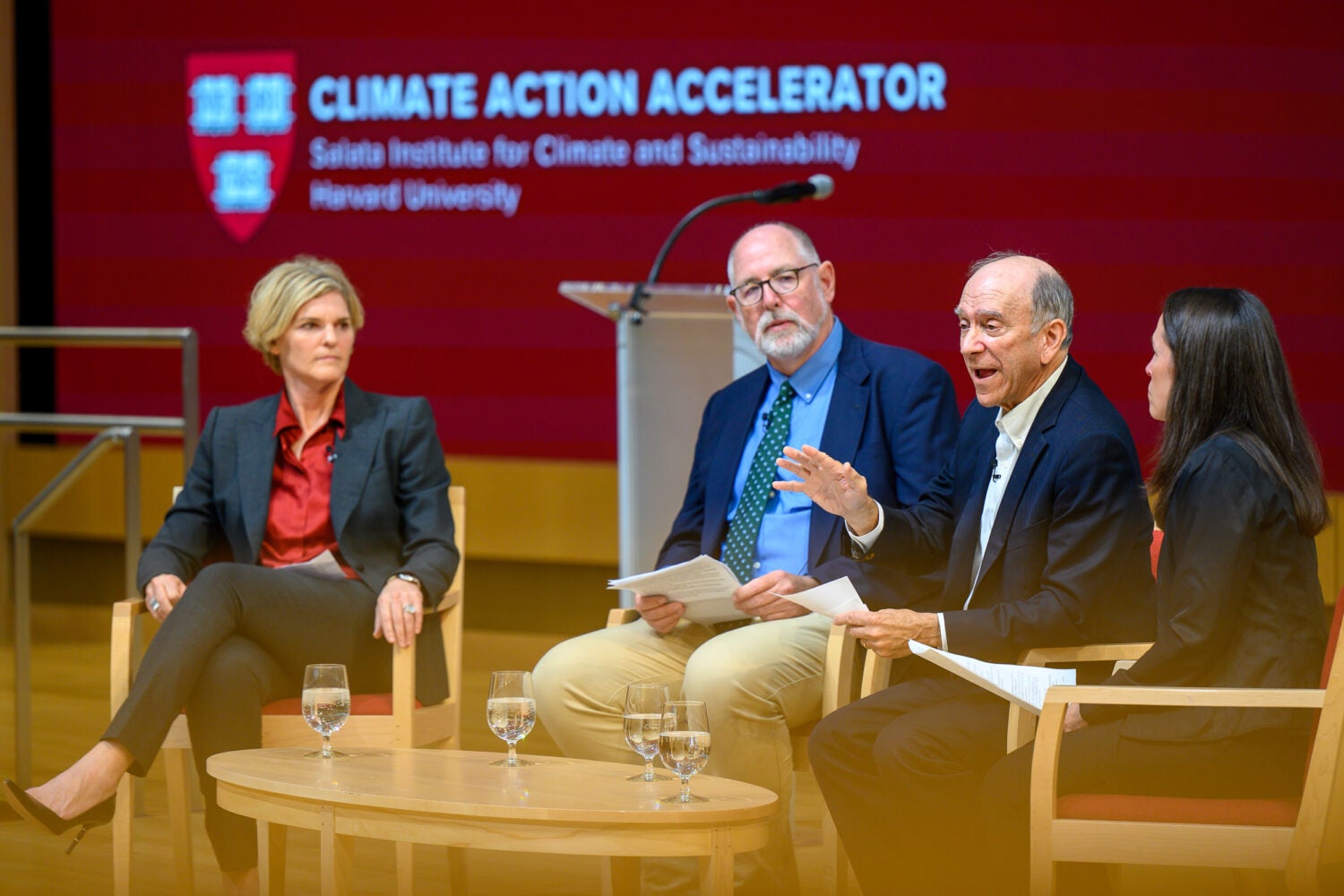The Trump administration’s attempts to eliminate the federal government’s ability to regulate greenhouse gases under the Clean Air Act are part of an “unprecedented upending of climate law and policy” in this country, Harvard Law School Professor Jody Freeman LL.M. ’91 S.J.D. ’95 told an audience on Sept. 19 during the third annual Harvard Climate Action Week.
“[This] is not in any way a normal pendulum swing of climate policy that we expect to see with any change in administration,” said Freeman, founder of the Environmental & Energy Law Program, in opening remarks to students, scholars, and leaders in business, government, and the nonprofit sector. She then moderated a panel called “Climate Law Under Siege (And the Path Forward).”
“What we are seeing is an unraveling of all federal climate policy,” she said, “the greatest retrenchment of climate law and policy we’ve ever seen in this country.”
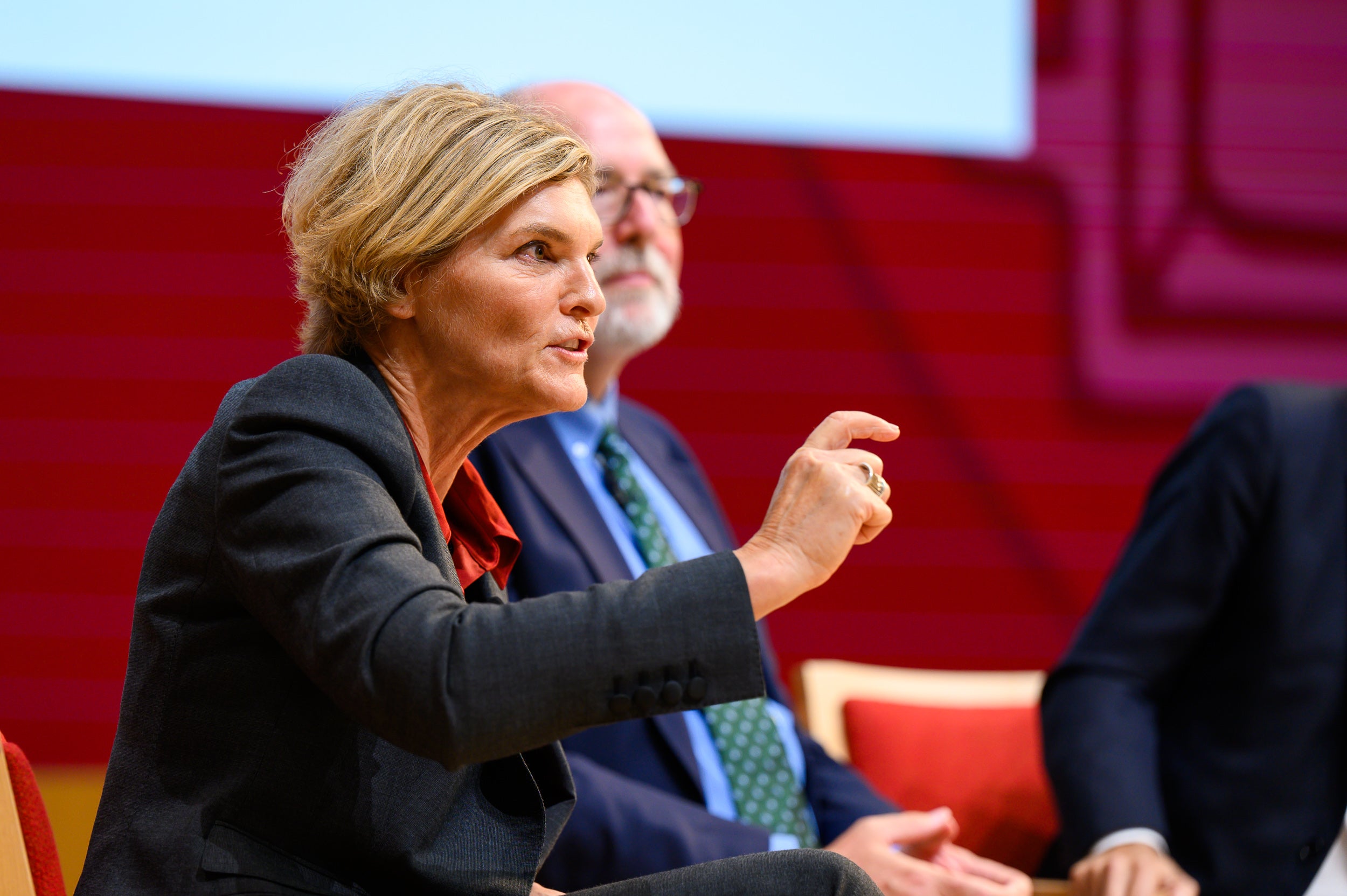
Since taking office in January, participants noted, the administration has decimated policies that seek to protect the environment. In addition to announcing plans to reverse a 2009 Environmental Protection Agency “endangerment finding” that has been the basis for efforts to regulate greenhouse gases, the federal government has removed obstacles to oil and gas drilling on federal lands and waters, cancelled nearly $700 million in funding for offshore wind projects, eliminated offices that promote environmental justice, and significantly reduced the agencies and departments that seek to enforce federal environmental protection laws.
The backpedaling on greenhouse gases alone — part of what the head of the Environmental Protection Agency, Lee Zeldin, called an effort to “[drive] a dagger straight into the heart of the climate change religion” — is catastrophic to mitigating the harms from the changing climate, said Richard J. Lazarus ’79, the Charles Stebbins Fairchild Professor of Law, who teaches environmental law and natural resources law.
“In Boston, we call that ‘the ball game,’” he said.
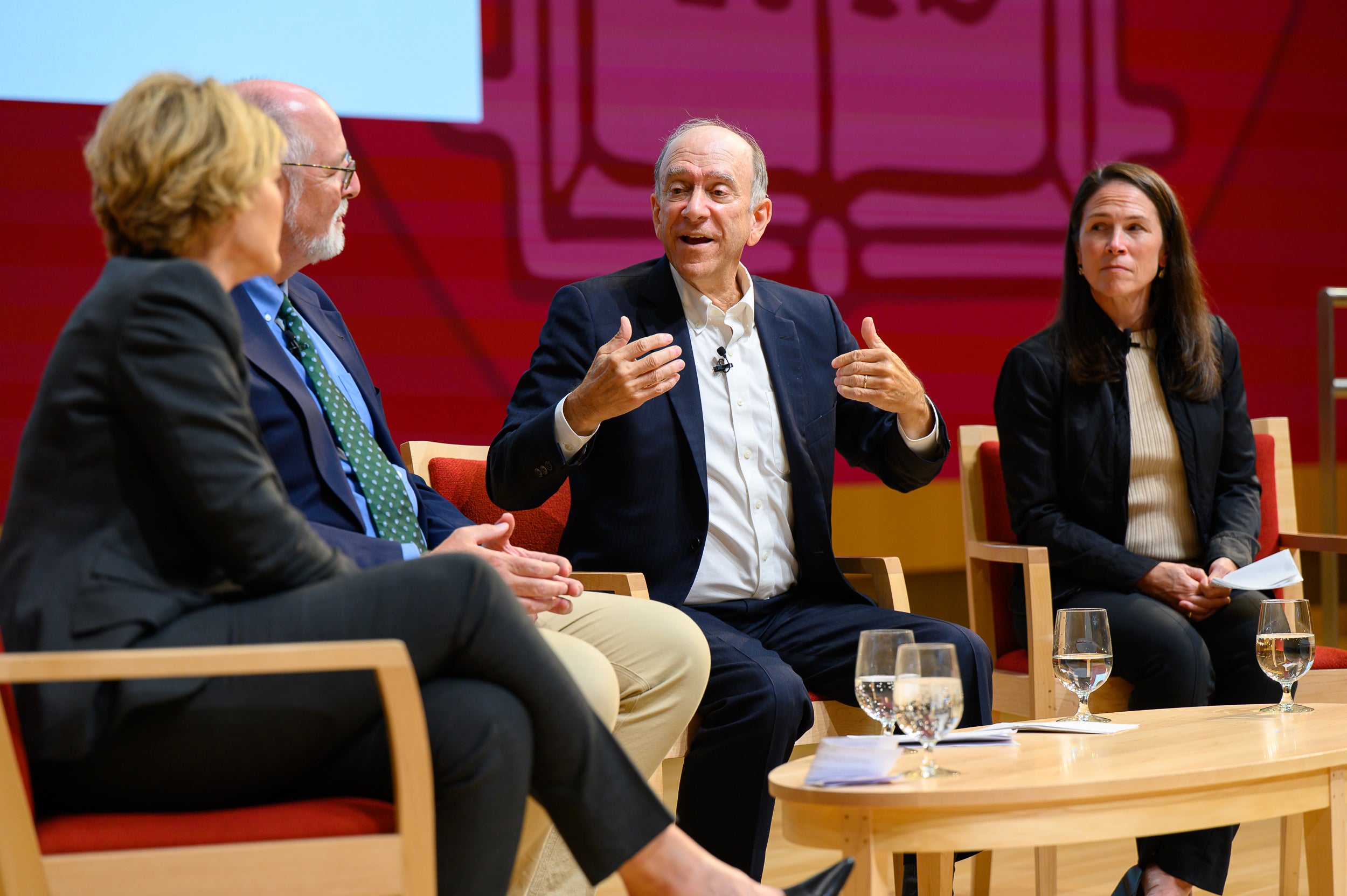
The panel, which also included Andrew Mergen, the Emmett Visiting Assistant Clinical Professor of Law in Environmental Law and faculty director of the Emmett Environmental Law and Policy Clinic, and Carrie Jenks, executive director of the Environmental & Energy Law Program, agreed the Trump administration’s arguments against the endangerment finding were not persuasive — Lazarus called them “disingenuous.”
“A lot of this stuff is probably unlawful,” he said, noting that it “takes quite a long time for the courts to catch up.”
States and the private sector are taking some steps to promote and invest in environmental protections — there are “huge co-benefits” for climate investments, including bringing down costs for consumers and long-term investment goals, Jenks said — but the federal government is challenging those efforts as well.
The panelists acknowledged that the Clean Air Act, while hugely successful in tackling many environmental harms, has not been a perfect fit for addressing climate change. Because of those shortcomings, past presidents, including Barack Obama ’91 and Joe Biden, relied extensively on regulatory authority to address climate threats. That, Lazarus acknowledged, “created a backlash,” including in the U.S. Supreme Court, which “wants clear congressional authorization” for any regulatory actions.
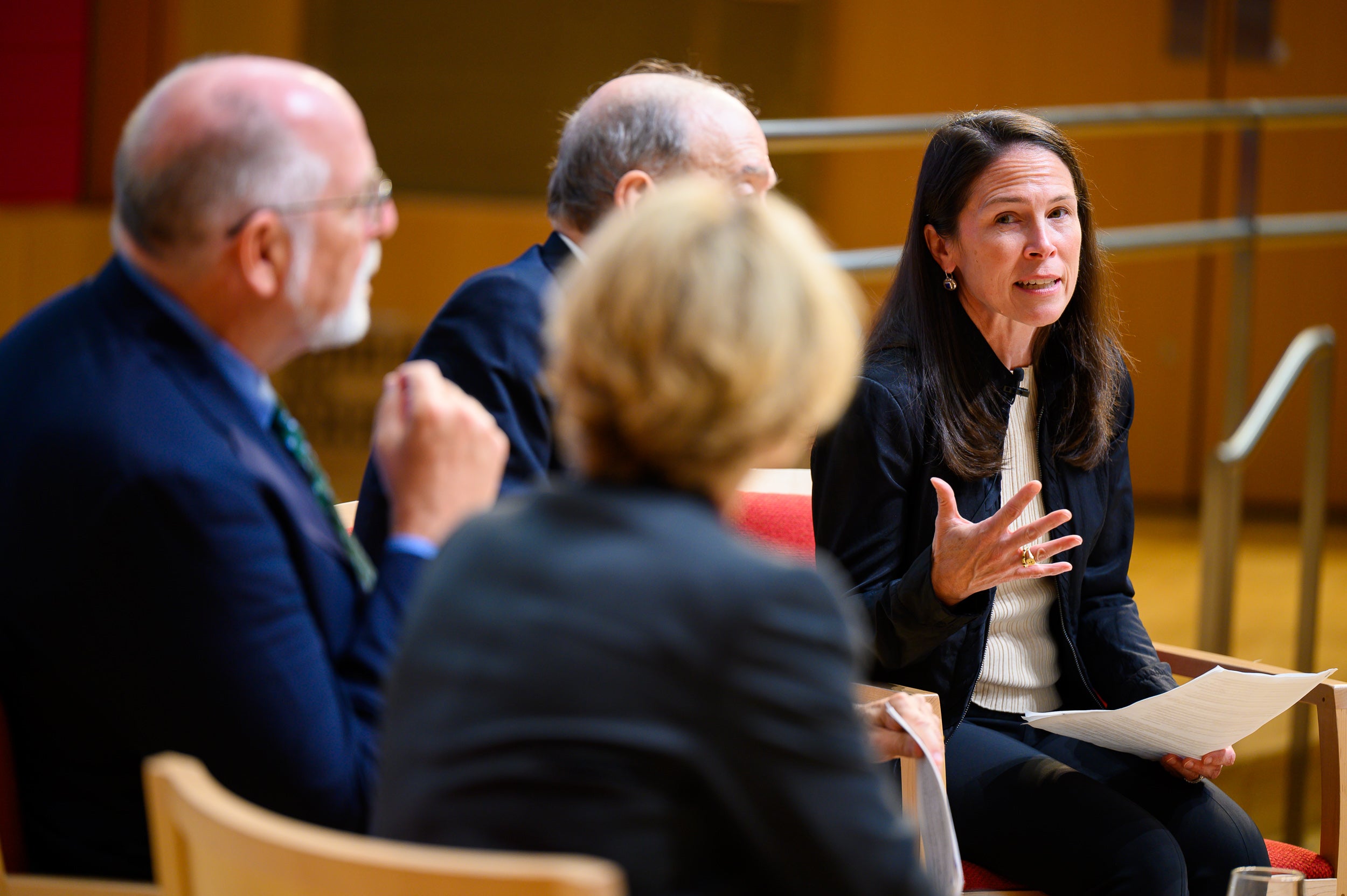
Nevertheless, Jenks said, past presidents, including Donald Trump during his first presidential term, generally have sought to replace rules rather than get rid of them. The current administration isn’t doing that.
“They’re … not proposing an alternative,” Jenks said. “They’re just proposing to eliminate. They’re trying to prevent a future administration from doing something different. It’s not really a rollback; I think it’s a complete elimination.”
Mergen thinks the courts will continue to exercise their power in preventing unlawful actions and emphasized that many dedicated career civil servants remain in the government.
“Things are falling apart, but the center can hold,” Mergen said. “We don’t have a lot of time for the center to hold, but there are some very good people trying to hold the institution together, and that matters.”
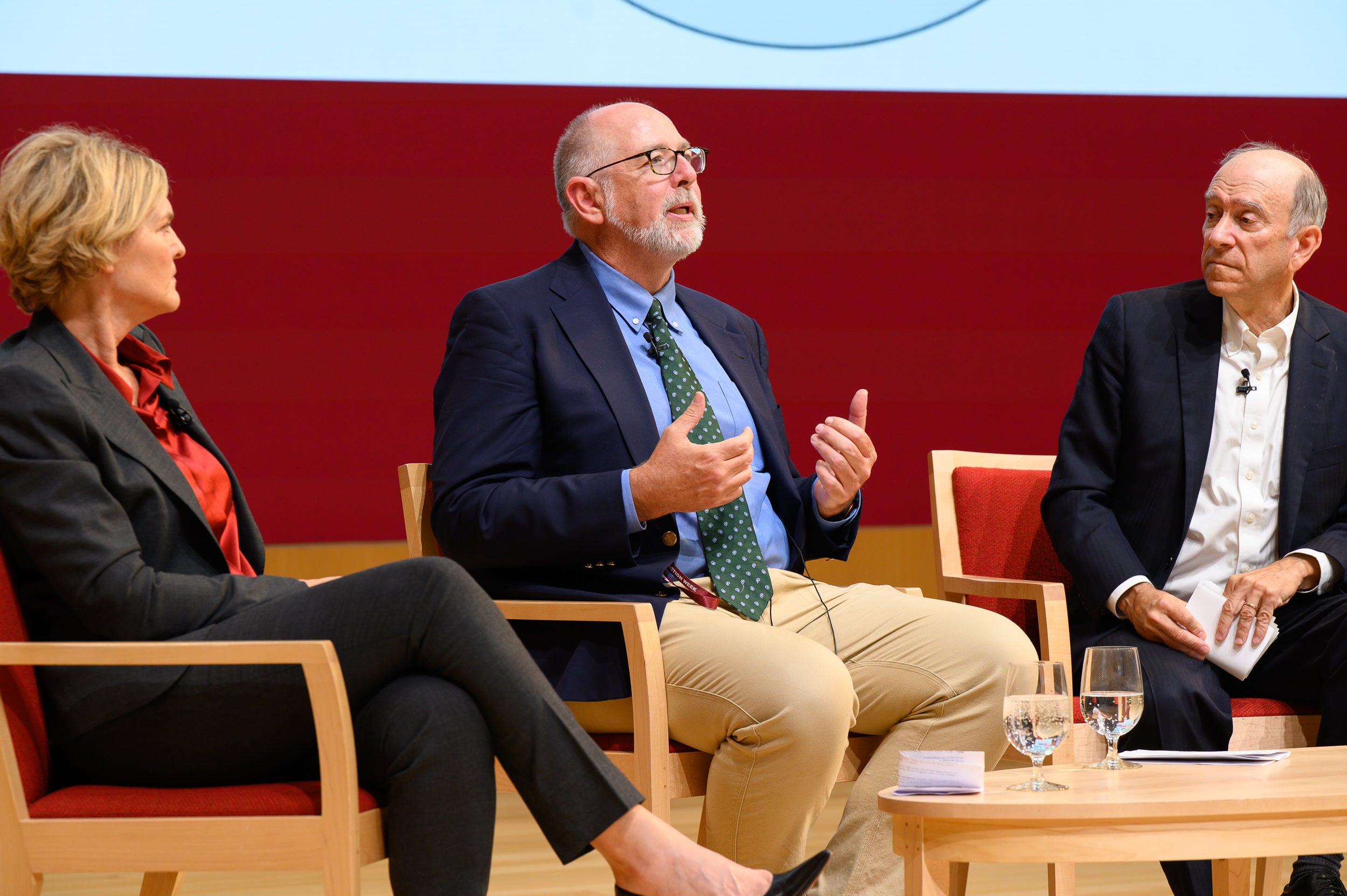
The panelists said they remain inspired by the younger generation, including the students in their classes and programs, and, in response to audience questions, they offered advice for anyone hoping to change the direction of climate policy in the United States.
“You can talk, argue, write, give money, give your time, volunteer, engage, go work on campaigns, go work for states while the federal government is out of action,” Freeman said. “Figure out where your talents lie and go deploy them.”
Lazarus agreed.
“This problem is not going away … and you’re our future so you can’t give up. You’ve got to double down,” he said.
Harvard Climate Action Week convenes more than 20 Harvard schools, centers, and institutes to discuss climate research, education, and engagement across campus. The event concludes with the Harvard Climate Symposium, hosted by the Salata Institute for Climate and Sustainability. Other participants in this year’s symposium included Massachusetts Governor Maura Healey, Harvard President Alan Garber, and Judy Chang, a member of the Federal Energy Regulatory Commission.
Want to stay up to date with Harvard Law Today? Sign up for our weekly newsletter.
